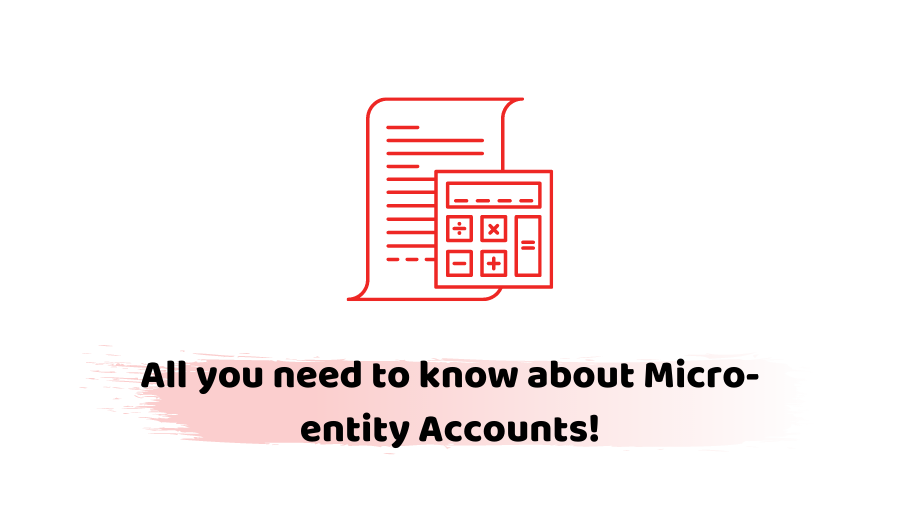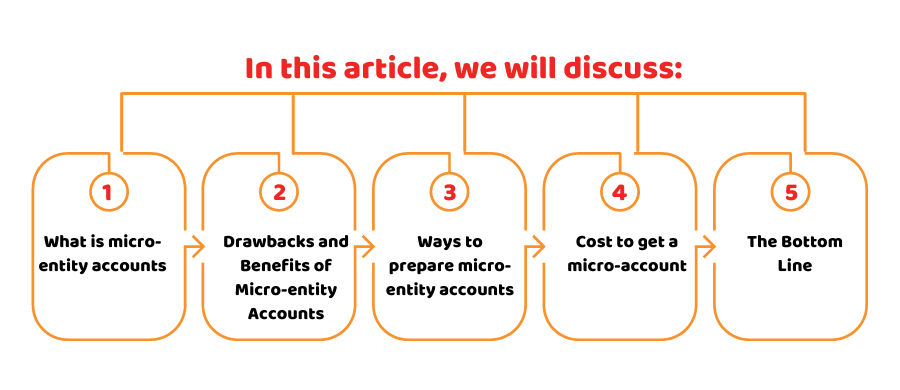Micro entity refers to a really small private limited company. This term is also known as the micro company. Here comes the discussion of micro-entity accounts as well, that you might be looking for. Let’s say you are the director of a micro-entity, there is an easy way to save your time and energies to prepare your accounts. By using micro-entity accounts. In this article, we will discuss:
- What is micro-entity accounts?
- Drawbacks and Benefits of Micro-entity Accounts
- Ways to prepare micro-entity accounts
- Cost to get a micro-account
- The Bottom Line
Accotax Chartered Accountants in London is a dedicated firm based in Morden, UK. Call us at 02034411258 or send us an email at [email protected].
What is Micro-entity Accounts?
HMRC has ensured for all companies pay company tax returns. However, the options are open for small businesses in the case of stature accounts. Submitting tax returns in a simplified format that we call a micro-entity account will help you to save your time and energy.
During the financial year, if a company meets the following conditions, it is known as a micro-entity according to the company act 2006.
- The annual turnover must be more than £632,000.
- The balance sheet total must be more than £316,000.
- In the company for the whole year, the employees must be more than 10.
According to small company regulations 2013, micro-entities are free from some requirement of financial reporting while they are preparing year-end company accounts. However, some businesses can’t apply to this exemption, this list includes the following:
- Financial Institutions like banks
- LLPs (Limited Liability Partnerships)
- Public Limited Companies
- Investment Undertakings
- Subsidiaries of parent companies
These new rules associates with small businesses are there to help and ensure that the requirements are not equally time-consuming for small businesses as they are for large businesses.
Drawbacks and Benefits of Micro-entity Accounts:
If we come into the discussion of drawbacks and benefits of micro-entity accounts, we can say that it is time-saving and stress-free if you opt for it. You are not even required to add documents like the director’s report. Another benefit is that your business performance report has not to be shared with the shareholders in case you and your partner are the only people to carry out your small business. The process of a year-end account will be a lot easier.
You may select to file ‘filleted’ with Companies House, which may lessen how facts are publicly open about your organisation’s performance. This can prevent competition from getting facts and information about your business scenario and this will definitely maintain your information private. However, if you’re actively looking for new shareholder buy-in or investment that may permit your organisation to grow, micro-entity money will have your back. Without a clear financial picture of your operations, you may feel it tougher to stable funding or loans that make growth possible.
Interested in ACCOTAX – Accountants in London? Why not speak to one of our qualified accountants? Give us a call on 02034411258 or request a callback. We are available from 9:00 am – 05:30 pm Monday to Friday.
Micro-entity Accounts – Ways to Prepare:
To lessen the publically available data, you can opt fillet for your accounts to make the general public report. You will require a balance sheet with footnotes. Ensure to provide the evidence of profits and losses and your annual accounts must be according to the small companys’ regime.
Even in case, you do record micro-entity accounts, it’s critical that you privately offer as data as you could for your company’s individuals and shareholders. They have invested time and cash into your company and are rightful to get an idea of how it’s performing.
Get an instant quote based on your requirements online in under 2 minutes, Sign up online or request a callback.
Cost to get a Micro-entity Account:
Most accountants’ charges are decided through the size of your organisation, in addition to different elements like area and the complexity of your debts, which means fees for a micro organisation may be on a decreasing scale. If your turnover is between £20,000 and £300,000, you must pay between £150 to £600. If you’d like an accountant to do your process.
It’s crucial to notice that such figures are guidelines. Also, you’ll require to talk to accountants in your regions to get an idea of your cost for accounts.
The Bottom Line:
Now that you know what is micro-entity account, we will sum up the discussion by saying that there are benefits and drawbacks associated. However, most businessmen view micro-entity accounts as suitable only for small businesses which provide them with the joy of not indulging in time,e-consuming requirements that are challenging even for large companies.
Can’t find what you are looking for? why not speak to one of our experts and see how we can help you are looking for.
Disclaimer: This article intends to provide general information based on what is micro-entity accounts.






















































